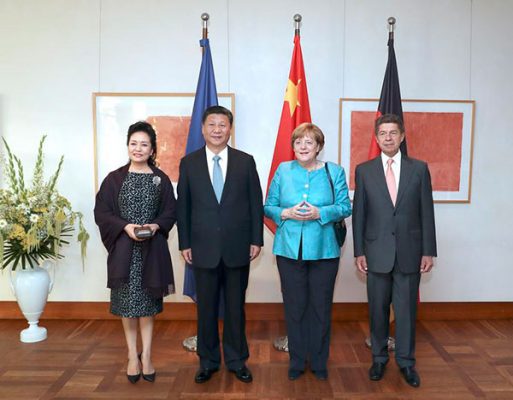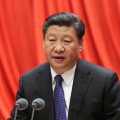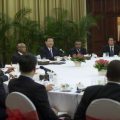
President, German leader find many points of consensus during visit
China and Germany signed a number of documents on Wednesday to boost cooperation in such areas as investment, trade, aerospace and panda protection during President Xi Jinping’s second state visit to the European country.
Meeting with German Chancellor Angela Merkel, Xi said that as the world’s second- and fourth-largest economies, China and Germany are two great forces with significant influence on the stability of Eurasia.
The conversation with Merkel was productive, Xi told reporters afterward, noting that he had reached many new points of agreement with the German leader on such issues as enhancing political trust, boosting pragmatic cooperation and strengthening collaboration on global affairs.
The two leaders also exchanged views on regional and global issues, including Syria and the Korean Peninsula, Xi said.
Xi arrived in Berlin on Tuesday for his second state visit to Germany. The first was in March 2014. It is the second stop of Xi’s European tour, which also took him to Russia. While in Germany, he will travel to Hamburg to attend the G20 Summit.
The president said that China and Germany will make joint efforts to push projects forward under the Belt and Road Initiative and explore third-party markets, since the interconnection of Eurasia will bring major opportunities.
In an early signal, major European aircraft manufacturer Airbus announced on Wednesday that it had signed a deal with China Aviation Supplies Holding Co to supply 100 A320 and 40 A350 aircraft. The deal was valued at about $22.8 billion.
Noting that the two countries had signed a document to cooperate on a hydropower project in Angola, Merkel said Germany is willing to participate in such projects under the Belt and Road framework.
She also said Germany supported pushing forward negotiations toward an EU-China investment treaty and will continue to contribute to deepening EU-China cooperative ties.
Merkel also expressed gratitude for China’s support of the G20 Summit in Hamburg.
Economic and trade relations between Germany and China have reached a high level, not only with respect to goods but in technology exchange, she added.
This year marks the 45th anniversary of the establishment of China-Germany diplomatic ties. During Xi’s first state visit to Germany, the countries lifted bilateral relations to a comprehensive strategic partnership.
Bilateral trade volume reached $151.3 billion in 2016, and China became Germany’s largest trading partner for the first time last year.
Ulrich Blum, a German economist at Martin Luther University of Halle-Wittenberg, said the two countries are ideal partners that complement each other in various fields.
“Germany has a stable industrial structure and high-end technology. What it lacks is markets of sufficient size in which it can roll out its competencies and scale up production. Those are available in China,” Blum said.
China’s intelligent workforce has generated growth rates in recent decades of about 10 percent annually, he said, adding that it is one of the key factors in Germany’s global success.


